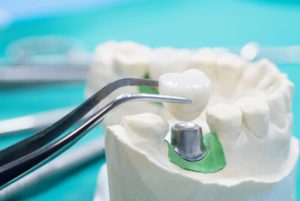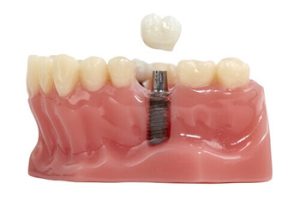Dental implants offer a revolutionary solution for missing teeth, combining durability with aesthetic appeal. As the allure of dental tourism grows, many find themselves weighing the options between affordable overseas procedures and domestic care. Despite the appeal of lower dental implant costs in the Philippines, choosing to have these procedures done in Australia presents significant advantages. In this article, we’ll uncover why Australia stands out as the preferred destination for dental implants, ensuring you make an informed decision that prioritises both your oral health and your wallet. Let’s delve into the reasons that make Australia the superior choice for your dental care needs.
What Are Dental Implants?
Dental implants are artificial structures that serve as replacements for the roots of missing teeth. Constructed mostly from titanium, dental implants are available in different forms, including endosteal implants that are positioned inside the jawbone and subperiosteal implants that are situated on top of the jawbone, just beneath the gum tissue. These implants provide a sturdy foundation for permanent or removable dental prosthetics.
What Is the Cost of Dental Implants in the Philippines?
Why Is Australia a Superior Option for Dental Implants Compared to the Philippines?
When considering dental implants, the quality and reliability of the treatment should be paramount. Australia stands out as a superior choice compared to the Philippines for several compelling reasons related to healthcare standards, technological advancements, and overall patient outcomes.
Stringent Healthcare Standards
Regulatory Environment and Professional Training: Australia’s healthcare system is renowned for its strict regulatory environment. Australian dental professionals are required to undergo rigorous training and continuous professional development in order to practise. The Australian Dental Association (ADA) enforces strict guidelines that ensure all dental practitioners maintain the highest standards of care. In contrast, while the Philippines also has regulations in place, the enforcement and consistency may vary, which can affect the quality of dental care.
Accreditation and Quality Control: Dental clinics in Australia are often accredited by national standards organisations that audit them regularly to ensure compliance with health and safety protocols. This systematic approach to quality assurance contributes to the overall superiority of dental care, including dental implant procedures. Patients in Australia can feel more secure knowing that their healthcare providers adhere to stringent standards that are not only national but often internationally recognised.
Advanced Dental Technology
Innovation and Equipment: Australia is at the forefront of dental technology, incorporating state-of-the-art equipment and techniques in dental treatments. This includes leveraging high-tech imaging solutions for accurate planning and execution of dental implant procedures, which is crucial for attaining successful results.
Australian dental clinics frequently update their technology and techniques based on the latest research and innovations in dental science.
Material Quality and Procedural Success: The materials used in Australian dental implants, such as the titanium screws and the ceramic crowns, are typically of higher quality and meet strict safety standards. This not only enhances the durability and functionality of the implants but also reduces the risk of complications. The high success rate of dental implant procedures in Australia reflects the effectiveness of these advanced practices.
Transparent and Comprehensive Cost Structure
Understanding the Full Cost: While the initial dental implants cost may appear more affordable in the Philippines, the overall expenses can add up when factoring in travel costs, accommodation, and potential follow-up treatments for complications. Australian dental clinics provide transparent pricing models that outline all costs involved in the dental procedure, helping patients plan financially without hidden fees.
Choosing Australia for dental implants ensures not only a higher standard of care but also access to advanced dental technologies and comprehensive support throughout the treatment process. The rigorous standards maintained within the Australian dental community and the transparency in cost and treatment options provide a reliable and secure environment for anyone looking to invest in their oral health. For these reasons, Australia is often considered a superior option for dental implants compared to the Philippines.
How Does the Process of Starting Dental Implants Work?
Understanding Your Needs and Goals
The initial step in the dental implant procedure is meeting with your implant dentist for a consultation. This session will include an evaluation of your oral health, examining the state of your teeth, gums, and jawbone.
This stage is crucial for determining whether you are a suitable candidate for dental implants. The dentist will discuss your dental and medical history, answer any questions you might have, and outline your treatment goals.
Detailed Oral Examination and Imaging
A comprehensive examination, often involving X-rays or CT scans, is conducted to evaluate the density of your jawbone and the positions of your natural teeth and nerves. This information is vital for planning the implant placement and ensuring that the implants will function well alongside your natural teeth.
Custom Treatment Planning
Using the data gathered from the initial assessment, the dentist will develop a tailored treatment plan. This plan includes the specifics of how many implants are needed, their optimal placement, and the timeline for the procedure. The planning phase is meticulous to ensure precision during implant surgery.
Discussion of Prosthetic Options
Depending on your situation, you might be opting for a single dental implant or multiple implants. The dentist will also discuss the types of prosthetic teeth (such as crowns or bridges) that will be attached to the implants. These prosthetics are designed to match the hue and size of your natural teeth, ensuring an aesthetic result.
Implant Placement Procedure
Dental implant surgery is generally done with local anaesthesia, but patients can opt for sedation if desired. The surgery involves a small incision in the gum to expose the jawbone.
Securing the Implant
Once the implant is placed in the jawbone, the site is stitched up to allow healing. The titanium post will serve as a root for the artificial tooth and must integrate with the bone over several months—a process known as osseointegration.
Immediate Post-Operative Care
After implant surgery, the dentist will provide tips on how to care for your mouth during the healing phase. This includes guidelines on oral hygiene practices to prevent infection and recommendations for follow-up appointments to monitor the progress of the implant.
Long-Term Care and Maintenance
Once the implants have fully integrated with the jawbone, you’ll return to the dental clinic to have the permanent prosthetic teeth installed. The dentist will ensure these are securely attached to the implants, providing functionality similar to that of natural teeth.
Throughout these stages, maintaining open communication with your dentist is essential for addressing any concerns and ensuring the best outcomes. The dental implant process is a commitment, but with the right preparation and care, it can considerably improve your quality of life by restoring function and confidence in your smile.
In What Ways Do Dental Implants Support Better Health?
Preventing Bone Loss
When teeth are lost, the jawbone in the empty space can begin to deteriorate due to lack of stimulation, which natural teeth roots typically provide. Dental implants act as artificial roots and integrate with the bone, providing necessary stimulation to maintain jawbone density and structure. This process helps prevent the bone loss that often follows tooth loss, maintaining the integrity of the facial structure and preventing the sunken jaw appearance often associated with ageing.
Enhancing Chewing and Nutrition
Dental implants restore full chewing functionality, allowing individuals to eat a wide range of foods. This is particularly paramount for maintaining a balanced diet rich in nutrients. Many who suffer from missing teeth find themselves restricted to softer, often less nutritious foods. Implants enable the consumption of tougher, fibrous foods like raw vegetables and nuts, which are crucial for overall health.
Simplifying Oral Care
Dentures often require special cleaning and can be challenging to manage, whereas dental implants are cared for similarly to natural teeth. This ease of maintenance fosters better oral hygiene practices, like daily brushing and flossing, which help mitigate the risk of gum disease and other dental issues.
Limiting Dental Decay and Disease
By filling the gaps left by missing teeth, implants prevent the shifting of remaining natural teeth. Misaligned teeth can create hard-to-clean areas that accumulate plaque and lead to decay. By keeping teeth properly aligned and filling gaps, dental implants limit the spaces where bacteria can thrive and thereby reduce the risk of cavities and oral infections.
Boosting Self-Esteem and Confidence
The psychological impact of dental implants is profound. Missing teeth can lead to social anxiety, which can affect personal and professional relationships. Dental implants provide a natural-looking solution that can significantly boost an individual’s confidence and improve their overall quality of life.
Enhancing Comfort and Speech
Dental implants are securely anchored, eliminating the discomforts often associated with ill-fitting dentures that slip or cause sores. Additionally, implants improve speech. Dentures can impede proper speech if they slip within the mouth, but implants remain fixed in place, enabling clearer and more natural speech.
Strength and Consistency
Designed to offer enduring performance, dental implants can last for years with appropriate maintenance, reducing the need for replacement.
This durability translates into less frequent dental procedures and disruptions, contributing to more stable long-term dental health.
Preventing Adjacent Teeth Damage
Conventional dental bridges require the adjacent teeth to be filed down to support the bridge, which can weaken those teeth. Implants do not require such alterations to neighbouring teeth, preserving more of the individual’s natural tooth structure and strength.
Dental implants offer extensive benefits that go beyond mere aesthetics. They are vital for maintaining and advancing oral health, dietary nutrition, mental well-being, and overall life quality. By providing a stable, long-term solution to tooth loss, they help individuals lead healthier, happier lives.
What Is the Proper Way to Care for Your Dental Implants?
To care for dental implants, brush twice daily with a soft-bristled brush, floss regularly using implant-specific floss, and attend routine dental check-ups to monitor implant health and prevent complications. Avoid chewing hard objects to protect the implant structure.
Are Dental Implants Painful?
Many people considering dental implants wonder about the pain involved. It’s reassuring to know that most patients experience minimal discomfort during the implant procedure. Dentists typically perform the procedure under local anaesthesia, which effectively numbs the area, making it stress-free. After the anaesthesia wears off, some mild soreness may occur, but this can usually be addressed with over-the-counter pain relief medications.
Modern techniques and the careful approach taken by skilled dental professionals ensure that the process is as comfortable as possible. The result is not just a more functional bite but also a boost in self-confidence and oral health.
Step Up Your Dental Care with Australian Implants
For further information or to discuss your options, please contact Casey Dentists at 07 4801 7035. Invest wisely in your oral health with Australian services to ensure you get the best possible care at a justified dental implant cost. Philippines often lacks the comprehensive care infrastructure which might impact the quality and durability of the dental procedure.
Note: Any surgical or invasive procedure carries risks. Before proceeding, you should seek a second opinion from an appropriately qualified health practitioner.
References:
https://www.fda.gov/medical-devices/dental-devices/dental-implants-what-you-should-know
perio.org/for-patients/periodontal-treatments-and-procedures/dental-implant-procedures/



